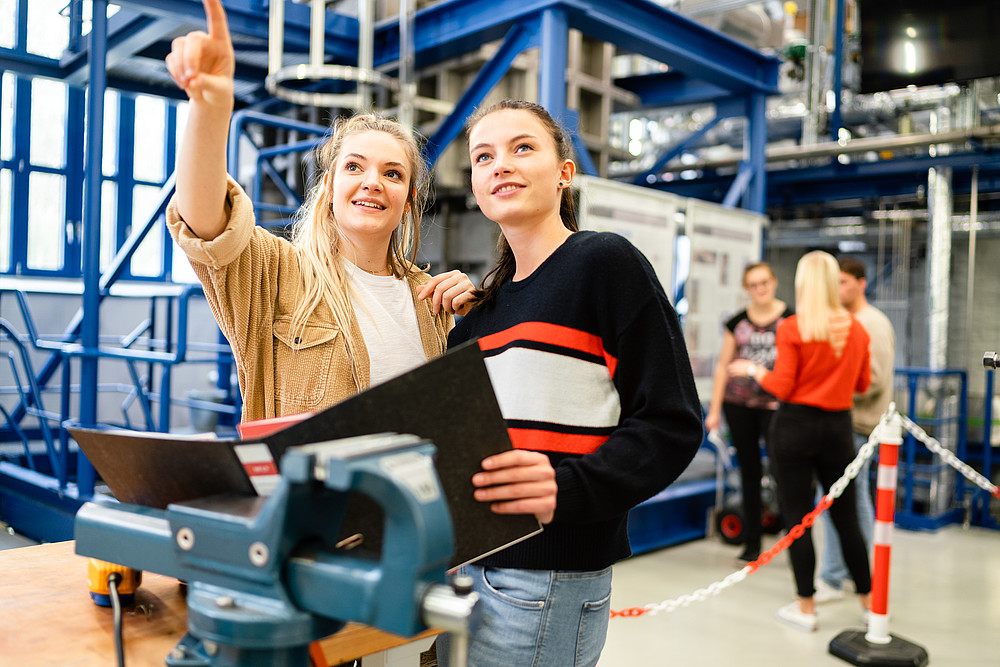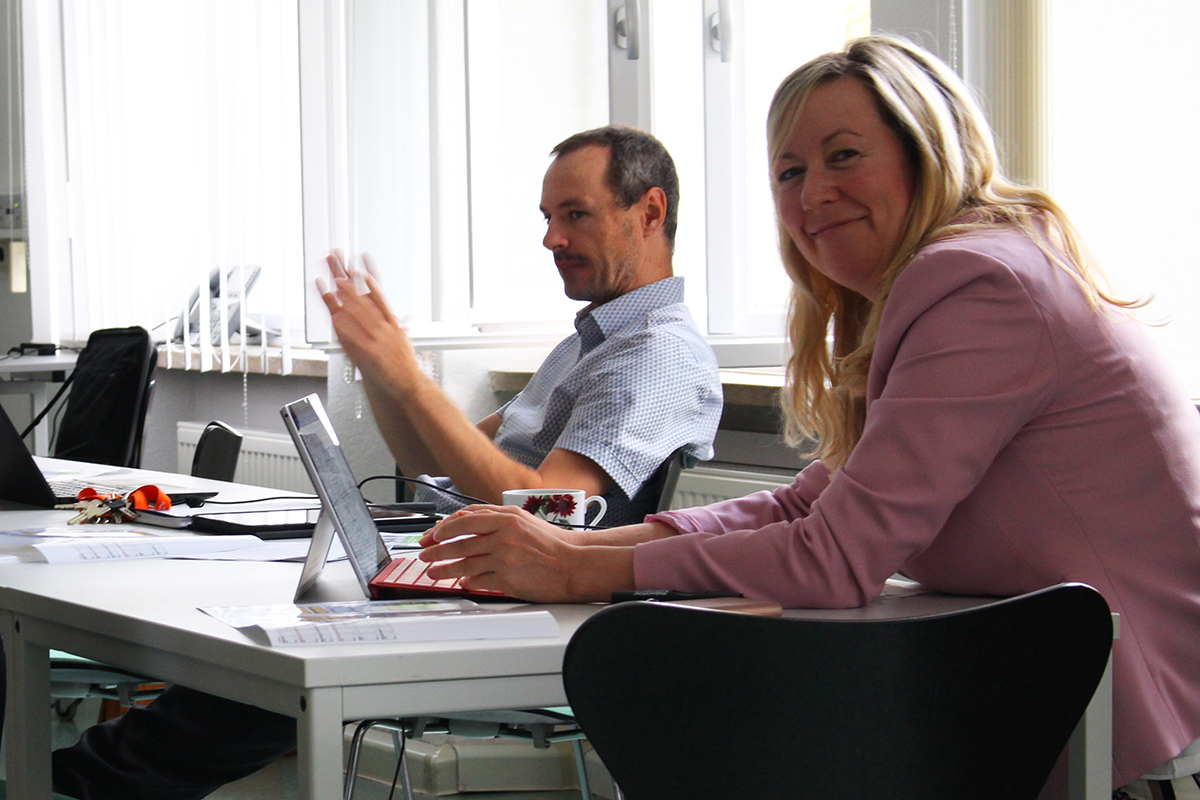Digital transformation in industrial engineering - future-oriented further development of the degree program.

How do you actually modernize a degree course with regard to the digital transformation? These and other questions were successfully asked by an interdisciplinary team at our university in order to further develop the specializations of the Industrial Engineering and Management course, among other things.
It has been possible to study industrial engineering at the Zittau/Görlitz University of Applied Sciences for many years. An interdisciplinary team consisting of the Vice President for Education and International Affairs Professor Sophia Keil, the Dean of the Faculty of Business Administration and Engineering Management Professor Uwe Wendt, the Dean of the Faculty of Mechanical Engineering Professor Bernd Bellair, the Director of Studies Professor Tino Schütte and other lecturers in key positions meet at regular intervals to further develop this degree program.
To ensure that our graduates are well equipped to enter the job market, they need specializations that enable them to support companies in technical, economic and ecological issues and also shape them in the future.
Based on a comprehensive literature review on the topics: Engineering education for the digital transformation, job profile studies, a company survey and a competitive analysis, a two-day workshop was held in collaboration with staff* from several STEM faculties at our university and recommendations for action were derived.
In order to precisely meet the goals and needs of the target groups, personas of future graduates were developed. The fictional characters Lisa and Lars are representative of the specializations with the working titles Process Development and Product Development. In the further course of the workshop, these specializations were developed in detail with qualification frameworks, career goals and competence requirements.
In summary, this example shows that interdisciplinary course development can work very effectively and efficiently. At the end of the workshop, the protagonists succeeded in drawing a future picture of the interdisciplinary industrial engineering degree program at our university. The task now is to set the right course in order to provide not only the fictional protagonists Lisa and Lars, but also our students with the necessary know-how to be even better equipped for the diverse professional and social challenges of the future.
Acknowledgements
In addition to the participating Deans of our university, special thanks also go to Professor Gerlinde Kretschmar, Professor Matthias Längrich and Professor Martin Sturm for their professional support, their innovative ideas and the opportunity for constructive discussion, as well as to the moderators and organizers David Sauer, Jan Fallgatter and Daniel Winkler.
